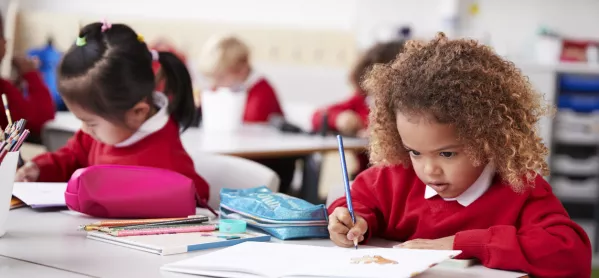The government has amended the new early years foundation stage (EYFS) framework to say that children should be given “rich opportunities” to learn about shape, space and measures, following pressure from the sector.
When the government published draft new early learning goals (ELGs) in 2018, as part of the review of EYFS, it chose to omit the “shape, space and measures” target, as well as any mention of problem solving and reasoning.
This decision was met with some criticism from the sector, including Department for Education (DfE) advisers.
Related: Decision to scrap ‘important’ early years goal defended
EYFS reforms: Local authority moderation will be scrapped
Viewpoint: Why ‘spatial ability’ could be the key to Stem success
Now, after hearing there is a need for a “greater focus on shape, space and measures within the educational programme” as part of a consultation, the DfE has decided to “include greater detail on the importance of shapes, spatial reasoning and measure as part of early maths learning”.
“Practitioners and teachers will still be required to teach children about shape, space and measures, as part of a well-rounded curriculum, as set out in the revised mathematics educational programme,” it said.
The proposed mathematics programme stated: “Children’s curiosity about number, shape, space and measure should be encouraged and furthered through opportunities to apply their growing understanding of the mathematical world to the world around them.”
It has now been revised to state: “It is important that the curriculum includes rich opportunities for children to develop their spatial reasoning skills across all areas of mathematics including shape, space and measures.”
Beatrice Merrick, chief executive of the Early Education charity, said: “The sector’s concern about the proposed removal of the shape, space and measure ELG was overwhelming, and we are glad to see this recognised by its inclusion in the educational programme for maths.
“The decision not to include it as an ELG ignored all the evidence that, rightly or wrongly, what is assessed often gets prioritised over what is not.
“That will not help children get the strong foundations they need for later learning - the evidence on the importance of spatial reasoning, for example, is strong.”
Schools can still adopt the reforms early, from September 2020, before the revised framework becomes compulsory in 2021.
“Government recognises the impact the Covid-19 outbreak has had on the early years sector and schools, particularly in terms of the impact on children’s learning and development as a result of closures,” the consultation report said.
“The EYFS reforms outlined in this response provide a strong basis to support children who may have missed critical months of early education.
“Therefore, government will proceed with offering schools the opportunity to adopt the final reforms from September 2020, followed by statutory national implementation as planned from September 2021.”





